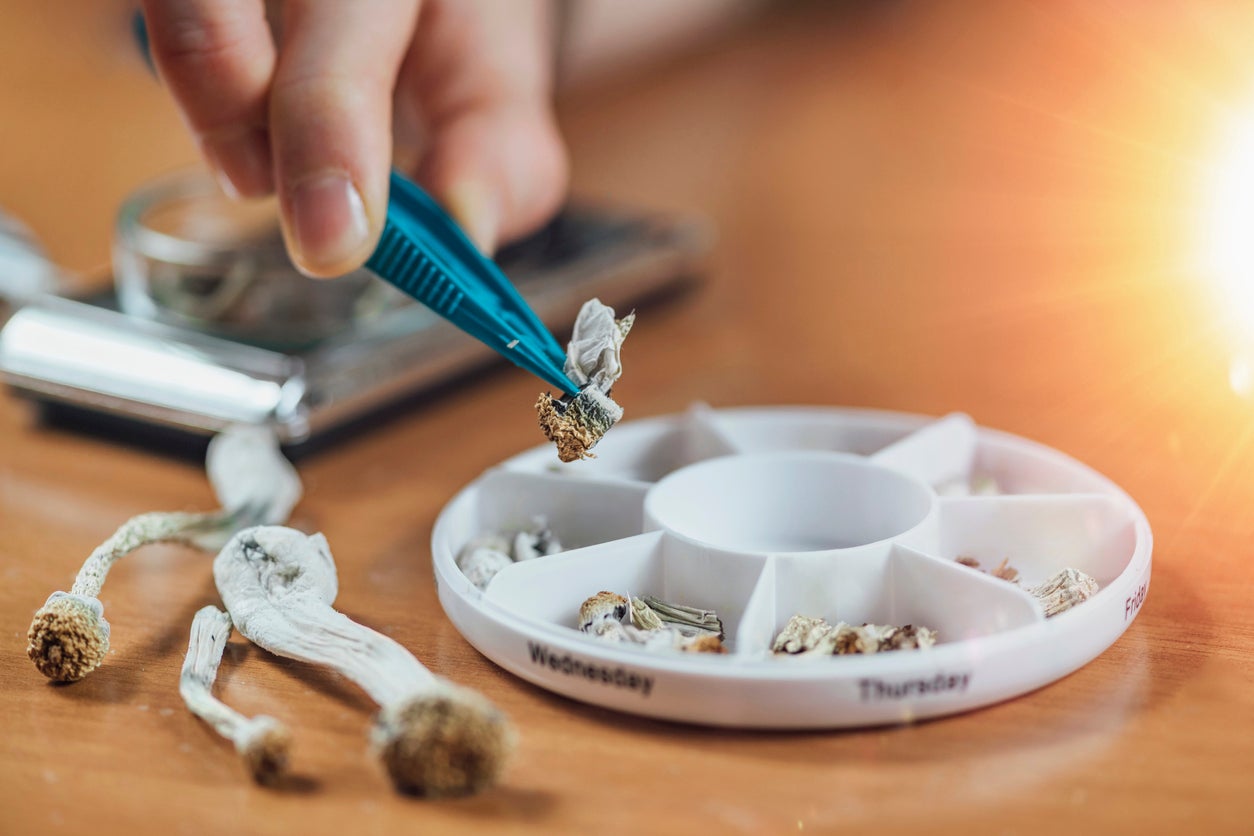Texas legislature approves bill to study psychedelics to treat PTSD in veterans
It’s unclear whether the governor will support the measure

Your support helps us to tell the story
From reproductive rights to climate change to Big Tech, The Independent is on the ground when the story is developing. Whether it's investigating the financials of Elon Musk's pro-Trump PAC or producing our latest documentary, 'The A Word', which shines a light on the American women fighting for reproductive rights, we know how important it is to parse out the facts from the messaging.
At such a critical moment in US history, we need reporters on the ground. Your donation allows us to keep sending journalists to speak to both sides of the story.
The Independent is trusted by Americans across the entire political spectrum. And unlike many other quality news outlets, we choose not to lock Americans out of our reporting and analysis with paywalls. We believe quality journalism should be available to everyone, paid for by those who can afford it.
Your support makes all the difference.Just in time for Memorial Day, the Texas legislature has approved a bill to study the use of psychedelic drugs for medical treatment of military veterans.
On Sunday, a proposal called HB 1802 passed both houses in the Lone Star State, which would approve the study of MDMA, ketamine, and psilocybin, the active ingredient in “magic” mushrooms, for medical uses, including a psilocybin clinical trial treating vets with post-traumatic stress disorder (PTSD).
“Psychedelic medicine has the potential to completely change society’s approach to mental health treatment, and research is the first step to realizing that transformation,” said representative Alex Dominguez, a Democrat who sponsored the bill, in a statement. “It’s said that ‘as goes Texas, so goes the nation.’ While states across the country consider how best to address the mental health crisis facing our nation, I hope they once again look to Texas for leadership.”
Under the initiative, the Baylor College of Medicine and a Department of Veterans Affairs facility would conduct the studies, according to Marijuana Moment, which reported the news.
According to Mr Dominguez, each year, at least 6,000 veterans die by suicide because of PTSD.
Texas governor Greg Abbott has not publicly taken a stance on the bill yet, and his office was closed and unable to be reached for comment due to the Memorial Day holiday.
Somewhat surprisingly in conservative Texas, the bill has attracted bipartisan support.
Former Texas governor and former US energy secretary Rick Perry, a Republican, has also endorsed the proposal.
“All of that properly done in the right type of clinical setting will save a multitude of lives,” Mr Perry said in April. “I’m convinced of it. I have seen it enough of these young men.”
Veterans groups have also come out in support of the measure.
“I am so proud of Texas. I am so proud of not only the bipartisan support but the expediency in which they’ve pushed this legislation through the House and through the Senate,” Amber Capone, founder of Veterans Exploring Treatment Solutions, told KXAN. “I feel like Texas will lead the way for all veterans in the United States.”
High-profile figures have touted the uses of mushrooms as well. Champion boxer Mike Tyson has said they “saved my life.”
The initiative is part of a broader loosening of drug regulations in the United States that goes beyond just cannabis.
States like Oregon have already approved psilocybin for therapeutic uses, while others like California, Iowa, Connecticut, Florida, New York, Virginia and Washington are considering psychedelic treatment and decriminalisation bills.
Now, more than one third of Americans live in states where recreational marijuana is legal, and more than half of all states have medical cannabis programmes.
Due to federal prohibitions on controlled substances, research on their efficacy is limited, though this month, after more than 50 years, the government expanded the list of companies allowed to produce cannabis for scientific study, which used to be made by a single facility and of dubious quality.




Join our commenting forum
Join thought-provoking conversations, follow other Independent readers and see their replies
Comments